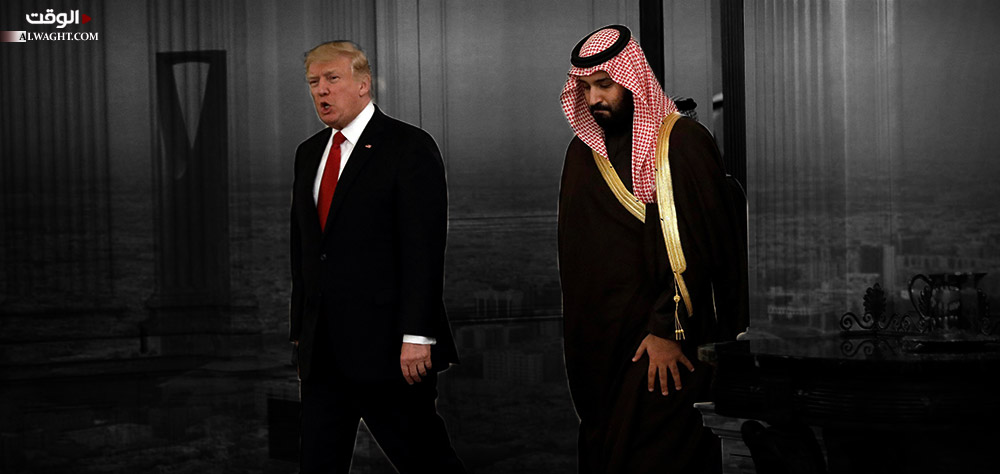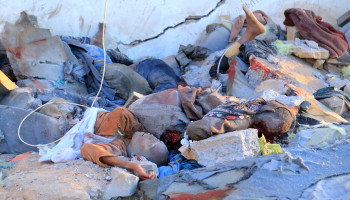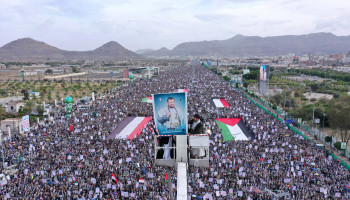Many realize and few admit that the Saudi-led aggression against Yemen has failed since the first weeks. When you wage a war that you promoted as the strongest party in it and you cannot resolve the field in the first days and weeks, you will have failed, much less, the war that has continued for more than 5 years without achieving any significant achievement, given the armament and billions spent on the Saudi army and its mercenaries inside Yemen.
The word “deterrence” means the action of discouraging an action or event and limiting its continuation. This definition applies to the Yemeni response to the aggression in the first and second year, however, recently and specifically for the last two years, the Yemeni military performance has surpassed the content of deterrence --from the bombing of the Abu Dhabi airport, targeting of Saudi Aramco, to the Quds and Zulfiqar missiles that fell north of the Saudi capital, Riyadh two days ago. This development in the Yemeni ability and response to aggression have implications for the field and policy implications.
In the Field:
The Saudi authorities resorted to recognizing the Yemeni strike, the 4th Balanced Deterrence Operation, by announcing intercepting Yemeni missiles fired at Saudi Arabia. But this mitigation of the strike has counterproductive results. The mere fact that Yemeni domestically-designed missiles reach the heart of the Kingdom as if they are on a picnic without interfering them throughout their path deserves a description of achievement and victory and the great penetration of Saudi military capabilities that cost tens of billions.
There are those who are trying to console themselves by saying that the US-made radars and intercept systems that help Saudi Arabia in its aggression deliberately do not intercept Yemeni missiles. But why does Washington allow Yemeni missiles to reach the heart of the Saudi capital as long as it is able to intercept them? And when that happens, where are the Saudi intercept systems? Where are the radars planted by Saudi Arabia on its borders, obtained from Israeli companies?
In Politics:
It has become evident that the allies of the Saudi Crown Prince Mohammed bin Salman in his aggression against Yemen are no longer keen to continue the failed adventure.
The UAE started its withdrawal from the game months ago and focuses on preserving the field and economic gains obtained in southern Yemen, especially Aden and Socotra Island. While other countries, whose army leaders took a group photo with the start of the aggression to promote the strength of the Saudi-led coalition, were absent for a long time.
As for the US, bin Salman drained his credit with the Donald Trump administration. The billions that Riyadh provided to Trump during his visit to it were supposed to be a price for the service of bin Salman and his assistance to reach the throne. However, the crown prince needed Trump's services to cover the arrests of dozens of princes and businessmen, then he asked for his help to cover the murder of journalist Jamal Khashoggi, then came the lapse of raising oil production months ago, which angered Trump to the point that forced bin Salman to expel his assistants from the room as the US President's voice rose on the phone.
All of this made the Saudi crown prince exhaust his influence with the US lobbies on ill-considered matters and adventures, to find himself now in a critical position in the face of the Yemeni response, which is rapidly heading in an upward trend.
The massacres against the Yemenis will not achieve an achievement for Riyadh, and the inhuman blockade of millions of innocent civilians will not convince Saudi allies that a victory will be achieved in the field. The immediate future carries economic unpleasant surprises for the crown prince, thus he will not be able to rely on his mercenaries who will not fight for free.
It is said that "to admit truth is a virtue", and after the 4th Balanced Deterrence Op, there do not appear to be many options on the Saudi table. Bin Salman may soon hear from the American shepherd, allies, and followers that it is better to admit frankly, not by mistake but by failure.
Source: al-Masirah.net







